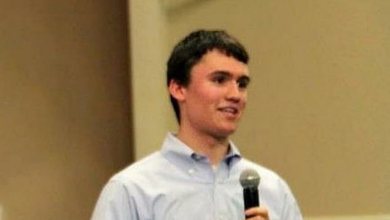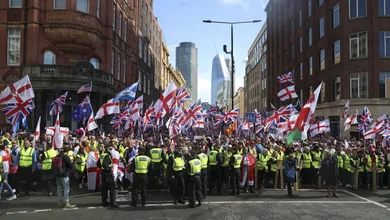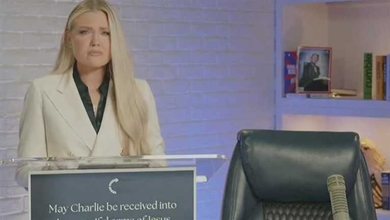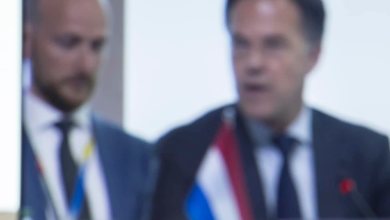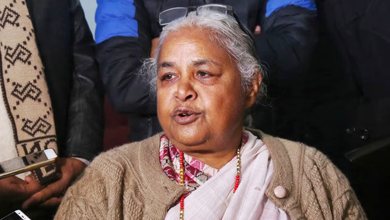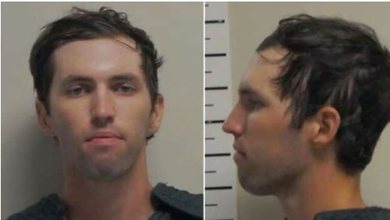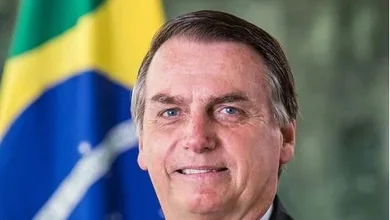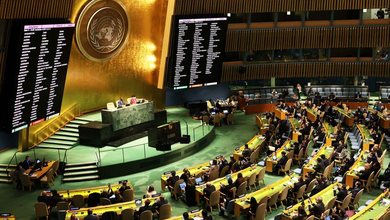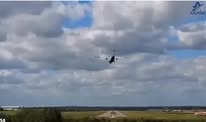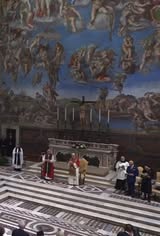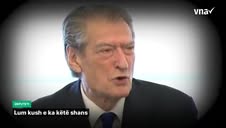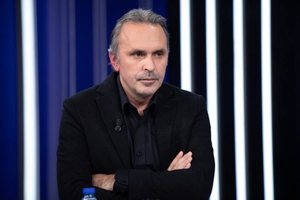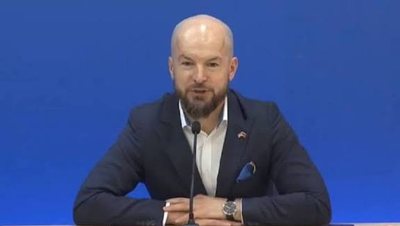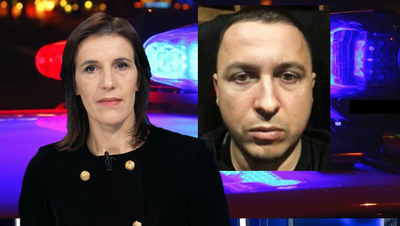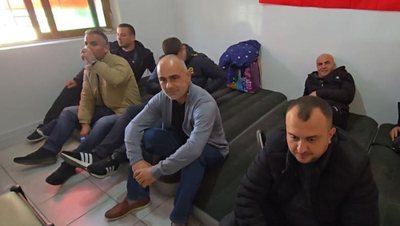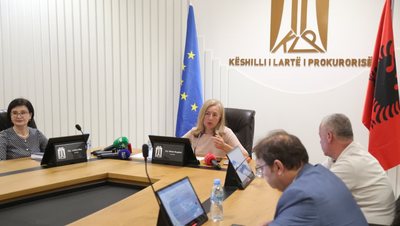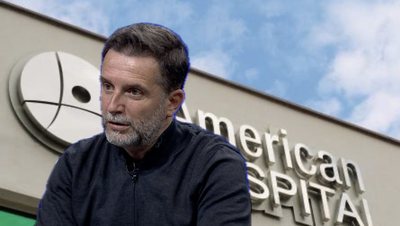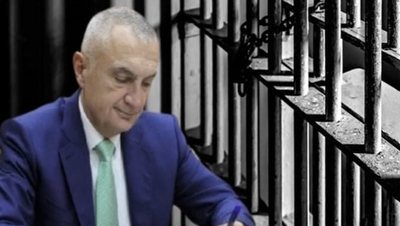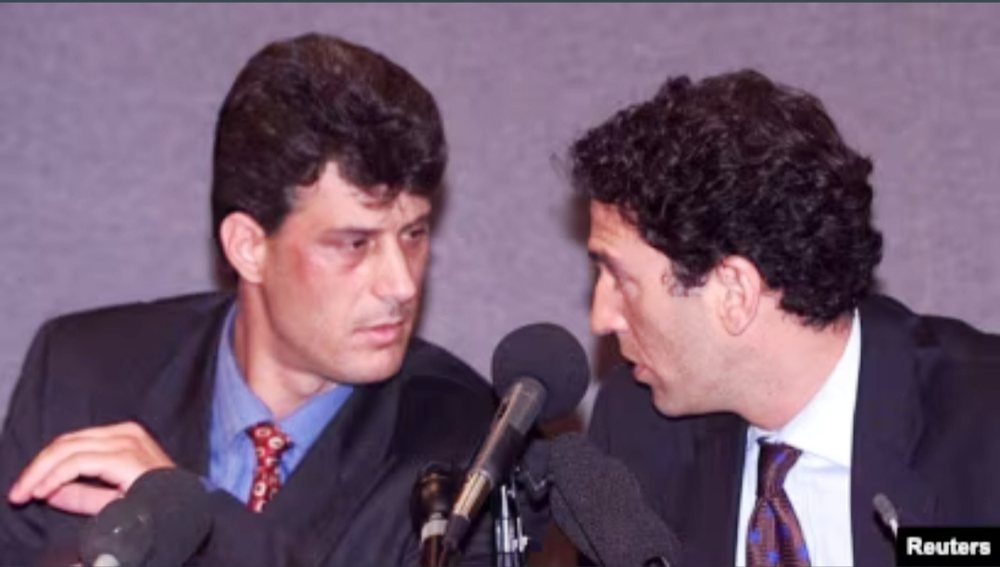
James Rubin, former US Assistant Secretary of State, will testify in The Hague for the defense of former KLA superiors accused of war crimes and crimes against humanity.
The defense of the accused has said that the list of witnesses, who will begin their testimony on September 15, is confidential.
Nearly three decades after the war in Kosovo, James Rubin will return to testify about the events of that time, which determined the course of a part of history.
The former US Assistant Secretary of State will testify before the Specialist Chambers in The Hague, in defense of former Kosovo Liberation Army commanders: Hashim Thaçi, Kadri Veseli, Jakup Krasniqi and Rexhep Selimi - all accused of war crimes and crimes against humanity.
"The KLA played a decisive role in the agreements that were signed by its leaders and in the demilitarization promised by them," Rubin said in an interview with Radio Free Europe on April 11, 2023.
More than two years later, he said he would go "back to the beginning," adding that he has more to say about the events of that time.
The defense of the accused told Radio Free Europe that the list of those who will testify on their side, starting on September 15, is confidential.
In the media, however, several names circulated - among them: Wesley Clark, William Walker, Bernard Kouchner and others.
The same were also mentioned in a list that the defense revealed in 2022.
Retired American general Clark led the NATO air campaign against Serbian military targets in 1999.
Speaking to Radio Free Europe several years later, he said that NATO did the right thing when it intervened.
"... the action was taken because we were seeing the beginning of a repeat of ethnic cleansing in the Balkans. That was the reason that prompted NATO to act. It was not simply a humanitarian action, but an action to prevent a humanitarian catastrophe that was unfolding before our eyes," said the former Supreme Allied Commander of NATO.
William Walker, at the time of the war, was head of the OSCE Verification Mission, which launched in October 1998, to oversee a ceasefire between Serbian forces and the KLA.
About three months later, in January 1999, Walker was at the site where 44 Albanian civilians were killed by Serbian forces, in the village of Recak.
He described the event as a "crime against humanity," prompting a change in Western policy toward Kosovo at the time.
"Those who deny the massacre are complicit in it," Walker told Radio Free Europe in December 2021.
Speaking to reporters several years later, he said he had "never heard of the yellow house."
The so-called "yellow house" is mentioned in a 2010 report for the Council of Europe, which was drafted by former Swiss senator Dick Marty.
In that document, the term “yellow house” is used to describe a location in northern Albania where former KLA members are suspected of committing serious crimes, “including human organ trafficking.”
The Marty Report preceded the creation of the Specialist Chambers - also known as the Specialist Court - in 2015.
The court is part of the Kosovo judicial system, but is composed of international judges and prosecutors.
Its headquarters were established in The Hague to avoid intimidation of witnesses.
The trial of four former KLA superiors began in 2023.
Thaçi was the political leader of the KLA before and during the 1998-99 war, Veseli was the head of the KLA's intelligence service, Krasniqi was the spokesman, and Selimi was among the general staff.
The indictment against them includes charges of illegal detention, torture, murder, crimes against humanity, enforced disappearance and persecution of hundreds of civilians and people who did not want to take part in the fighting.
These crimes allegedly occurred between March 1998 and September 1999 in various locations in Kosovo, but also in northern Albania.
According to the Specialist Chambers, Thaçi, Veseli, Krasniqi and Selimi bear personal criminal responsibility for these crimes, but they have all denied any wrongdoing.
Defense lawyers have said that the KLA would never have won the support of the international community if there had been a criminal plan of the magnitude that prosecutors allege.
According to them, the indictment is built on a selective misinterpretation of events.
The allegations of organ trafficking have not been proven and are not included in the current indictment.
Radio Free Europe


